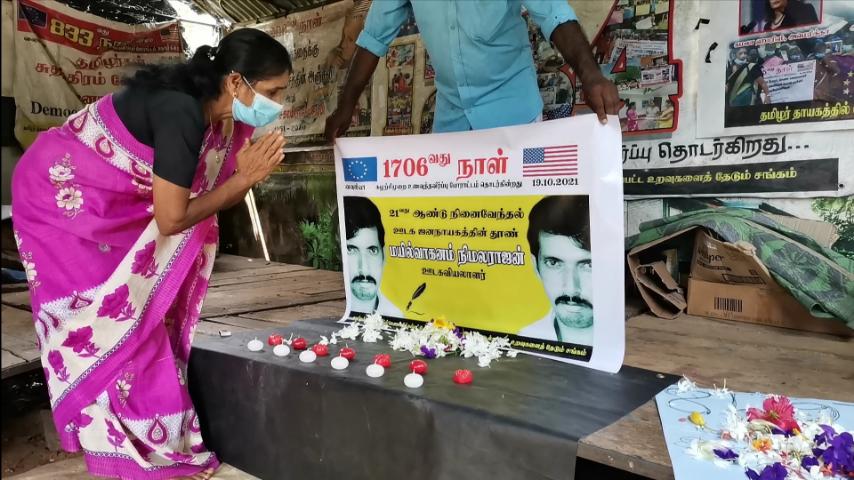The Metropolitan Police’s War Crimes Team have arrested a 48-year-old man in Britain over the murder of Tamil journalist Mylvaganam Nimalarajan in Jaffna more than 20 years ago - marking the first time that British authorities have made an arrest over war crimes committed in Sri Lanka.
In a breaking development, the British police said the man was arrested at an address in Northamptonshire on Tuesday, 22 February “as part of a proactive operation”.
“He was arrested on suspicion of offences under Section 51 of the International Criminal Court Act 2001,” the Metropolitan Police added, noting that the suspect has since been released but remains under investigation.
“This is a significant update in what is a sensitive, complex investigation,” said Commander Richard Smith, who leads the Met’s Counter Terrorism Command.
"There will still be people who may have information, particularly in relation to the murder of Mr Nimalrajan, and we would urge those people to come forward and help achieve justice for Mr Nimalrajan’s family.”

Tamil families of the disappeared pay tribute to the slain journalist in Vavnuiya last year.
Nimalarajan, a senior journalist who contributed to the BBC Tamil and Sinhala services, the Tamil daily Virakesari and Sinhala weekly Ravaya, was murdered in his Jaffna home on October 19th 2000.
Former BBC journalist Frances Harrison recalled his death, and the struggle to get justice for it, in a 2004 piece towards the end of her time on the island.
She detailed the night Nimalarajan was killed.
Two armed men burst into Nimalarajan's house as he was listening to the news on the BBC Tamil service at night.
One man shot Nimalarajan five times in the head and chest. The other knifed his elderly father; the medical report said he had thirty three centimetres of cuts on his face and neck.
Nimalarajan's mother came out of the bathroom to see her husband and son bleeding on the floor. At that point, the attackers tossed a hand grenade into the sitting room.
The mother and nephew were badly injured. The gunmen departed, firing in the air as they went.
All this, a short distance from a military checkpoint and during curfew hours.
Read more in her piece here.
The Committee to Protect Journalists stated shortly after his death:
“The assailants shot the journalist through the window of his study, where he was working on an article, and threw a grenade into the home before fleeing the premises. The attack occurred during curfew hours in a high-security zone in central Jaffna town.”
“Local journalists suspect that Nimalarajan's reporting on vote-rigging and intimidation in Jaffna during the recent parliamentary elections may have led to his murder.”
The government aligned paramilitary group the Eelam People's Democratic Party (EPDP) are suspected of carrying out the killing. Earlier last year, the Sri Lankan Attorney General's department ordered the release of the suspects involved in the murder case. At least two other suspects were thought to have been abroad.
Despite more than 21 years passing since the killing, no one has been held accountable for Nimalrajan's murder.
The Metropolitan Police said specialist officers were supporting members of Nimalrajan's family.
His mother, Lily Theres Mylvaganam, who fought relentlessly seeking justice for her son, passed away in Canada, last year. His father, Sangarapillai Mylvaganam, told Reporters Without Borders in 2018,
“This has been 10 years of suffering for our family. But my son’s memory is still alive. I would like people to remember him as a courageous journalist who served his community. The government could relaunch the investigation into my son’s murder if it wanted to. It is a question of political will.”
“We want justice to be done.”
Read more from the Metropolitan Police here.
To provide information, email the War Crimes Team directly at [email protected]
